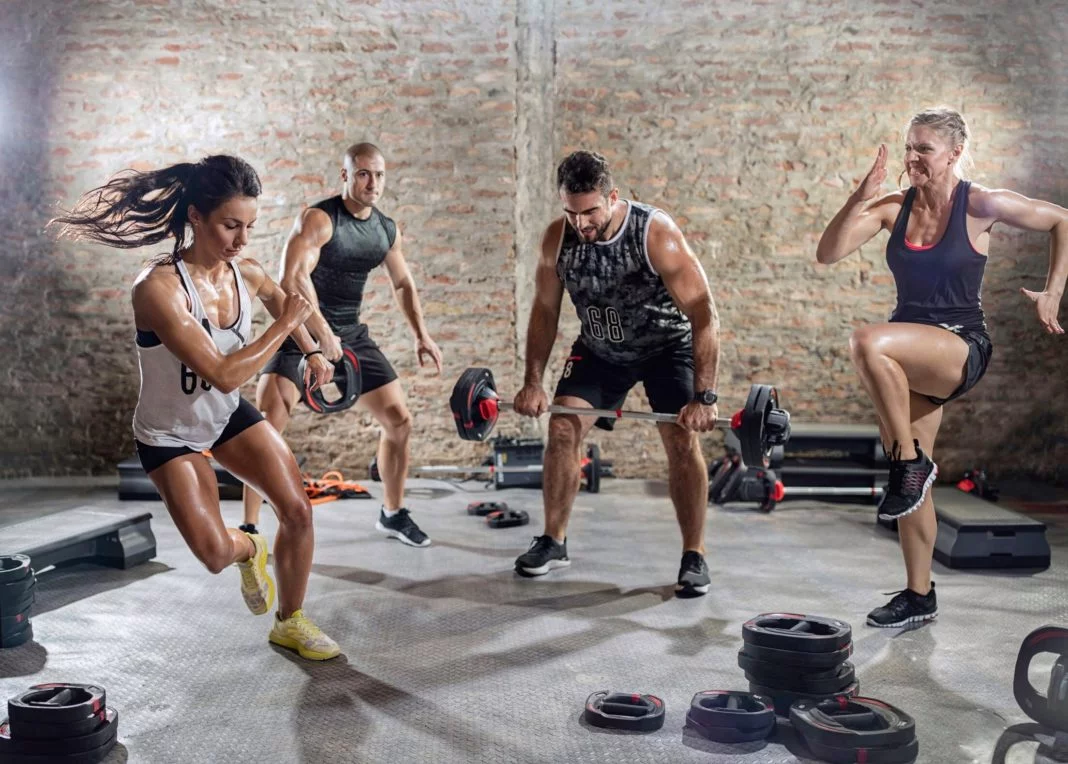Despite the multitude of people “not responding” to aerobic exercise, i. E. For those who are unable to increase their aerobic capacity, insulin sensitivity, or blood pressure from cardio (see here ), this section is written specifically for those who exercise primarily for aesthetic purposes. Let’s say you want to add cardio to your fat loss program. It is best for you to consider a number of factors, among which (but not exclusively) the effect of cardio on:
- appetite and food intake
- daily energy level and non-training activity
- quantity and quality of sleep
- resistance training goals (will it interfere with your training progress and personal bests?)
- willpower for the rest of the day (are you able to maintain discipline in the other components of your workout and nutrition?).
Let’s take a closer look at some of these elements.
Cardio and appetite
On the surface, cardio does not appear to have a significant effect on appetite or calorie intake (see recent meta-analysis ). However, this does not give us the complete picture. Take a look at this study, where scientists measured human calorie intake in response to 50 minutes. low-intensity exercise at 50% of the maximum heart rate. The researchers paid attention to the compensatory response to the exercise. In other words, if you burn 100 calories in a session, are you creating the conditions for consuming 100 calories later?
The graph shows the variation in compensatory nutrition between subjects. The solid line shows the equivalent calorie intake with and without training, meaning that there is no compensatory intake (the subjects did not consume more calories to compensate for the calories burned in the session). The dotted line shows excellent compensation for the calories burned in the workout (if they burned 100 calories, they ate 100 calories). Thus, people have only small compensation between the continuous and dashed lines (100 calories burned, but 50 eaten), while the subjects above the dotted line showed excellent or supercompensation (ate more than they burned in training).
Pay attention to the variability in the response.
Some people have a 300 to 600 calorie deficit after exercise, while others have put on an additional 300 to 600 calories. The former reinforced the result of lower calorie intake after cardio, the latter sabotaged the fat loss efforts by consuming more calories than they burned.
How does this apply to you? Are you the person who gets really hungry after low-intensity cardio? Then it may not be for you. Or maybe you are someone who is not hungry or even loses appetite in response to low-intensity cardio? If so, low-intensity cardio could be a good way to help create an energy deficit for fat loss.
It has been shown here that people who are more likely to compensate for their workouts with their diet tend to prefer sugary foods with a high fat content; these people experience a very strong hedonic reaction to such foods. So if you are a person who really enjoys cakes, ice cream and so on, and also have a weakness for these foods, then low-intensity cardio can stimulate your appetite. In your case, you should probably try interval training (some studies have shown appetite suppression in this case, although the results are conflicting) or not do cardio at all.

Cardio and NEAT
We now turn our attention to the effect of organized activity on non-exercise activity thermogenesis (NEAT). NEAT stands for energy expenditure for all physical activity during the day, except for planned exercises – everything from fidgeting to your car to maintaining posture while talking. NEAT plays an important role in regulating body weight and is just as important as exercise when it comes to energy expenditure. So what happens to NEAT when you start a training program? According to this study, it depends on the circumstances.
The researchers asked 34 women to complete a 13-week brisk walking program. Some women showed an increase in energy expenditure for physical activity, while others decreased the expenditure! How could this happen? This is due to a decrease in NEAT levels in some women to compensate for training. Perhaps the exercise made them fatigued, or they felt they could sit out the rest of the day after class. Regardless of the reason, each subject responded differently to the training program in terms of NEAT.
The figure below shows the differences in energy expenditure for physical activity between women without a decrease in NEAT and with a decrease.
You can see how low energy expenditure for physical activity was in women with a drop in NEAT compared to women who did not, especially on non-training days. These women became so sedentary for the rest of the day that their low activity canceled out the benefits of exercising. Again, we see significant differences in reactions between people.
How does this apply to you? Do you feel so drained after cardio that you sit for the rest of the day? If so, then the harm from cardio may outweigh the benefit for you, because it reduces NEAT. But if you are feeling energized and active, then cardio is most likely an effective way to lose fat for you. Again, research may not always show you how you will respond.

Cardio and sleep
Exercise usually has a positive effect on sleep. See recent meta-analysis . They can even help with insomnia (see here ). However, some people have exercise-induced sleep problems. According to this study, 53.9% of 256 college students experienced an extremely negative effect of vigorous exercise on sleep. There is a significant genetic component in the sleep-wake cycle and sleep disorders (see here ), indicating that some people are more prone to exercise-induced sleep problems. In a recent meta-analysisfound a high overall prevalence of insomnia symptoms among elite athletes, including high sleep delay, high sleep fragmentation, non-restorative sleep and excessive daytime fatigue, and worsening on training days versus non-training days. Many tend to increase sleep problems with increased intensity of physical activity and close proximity to sleep.
How does this apply to you? If you find that cardio improves sleep, then you should probably do cardio regularly, especially given the positive relationship between sleep and muscle mass, according to this study. If, on the contrary, you find cardio-related sleep disturbance, consider excluding it, especially since decreased sleep duration and quality are associated with obesity, insulin resistance, type II diabetes, metabolic syndrome, cardiovascular disease and mortality (see here ).
Cardio and progressive resistance training
The negative effects of cardio on strength training were first reported in 1980 in this study. Since then, we’ve learned a lot about the molecular mechanisms and training variables responsible for potential interference. A little bit of cardio won’t hinder your growth. Until a certain point, strength and endurance increase at the same time. However, when endurance training is done often enough and at significant intensity and duration, it will actually interfere with the adaptive gains in strength, power, and muscle mass.
But this section is not about negative impact. We suggest considering combining resistance training with your morning or evening cardio. It is very difficult to constantly increase strength and plan for increasing weights. This requires the utmost focus, firmness, and determination. One study has shown that push-ups and curls are impaired after challenging cognitive tasks (see here ). Of course, cardio is not a mental task, but this work shows that any factors can affect physical performance. Sometimes cardio gets in the way of achieving noticeable strength results in the gym, and lifting additional weights more than cardio helps to alter your fitness.
How does this apply to you? If you notice a negative effect of cardio on your strength training results, you can lower the intensity, for example, to brisk walking, maximizing the break between sessions during the day. Alternatively, you can give up cardio altogether and save your physical and mental energy for the gym. But if you don’t notice the effect of cardio on your ability to focus on strength training, then of course feel free to include some cardio. After all, most bodybuilders do cardio, and that obviously doesn’t hinder their growth.


